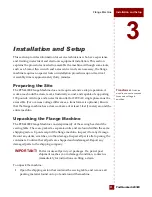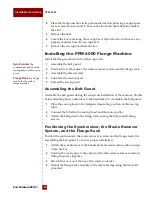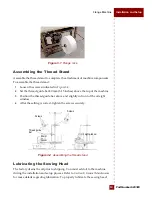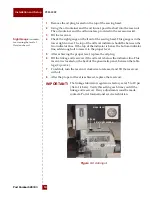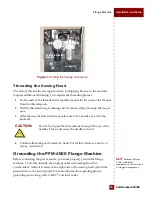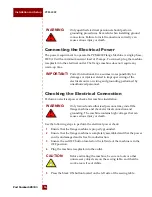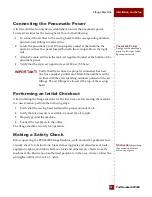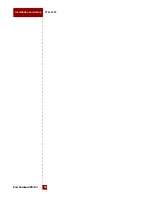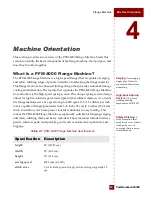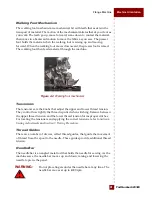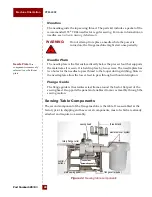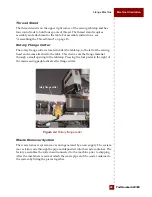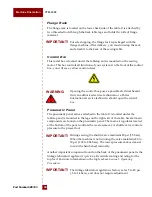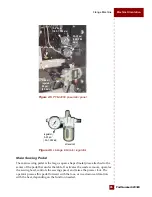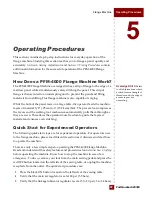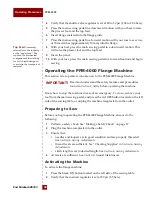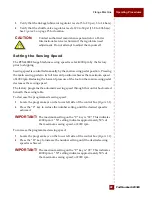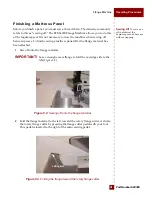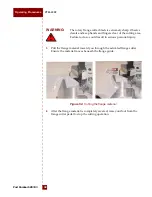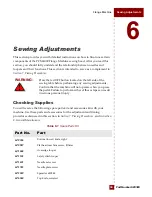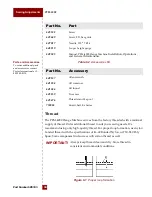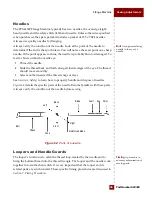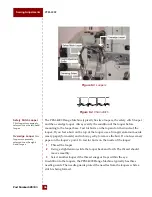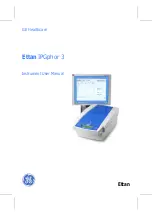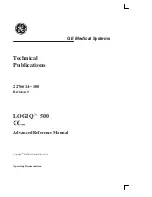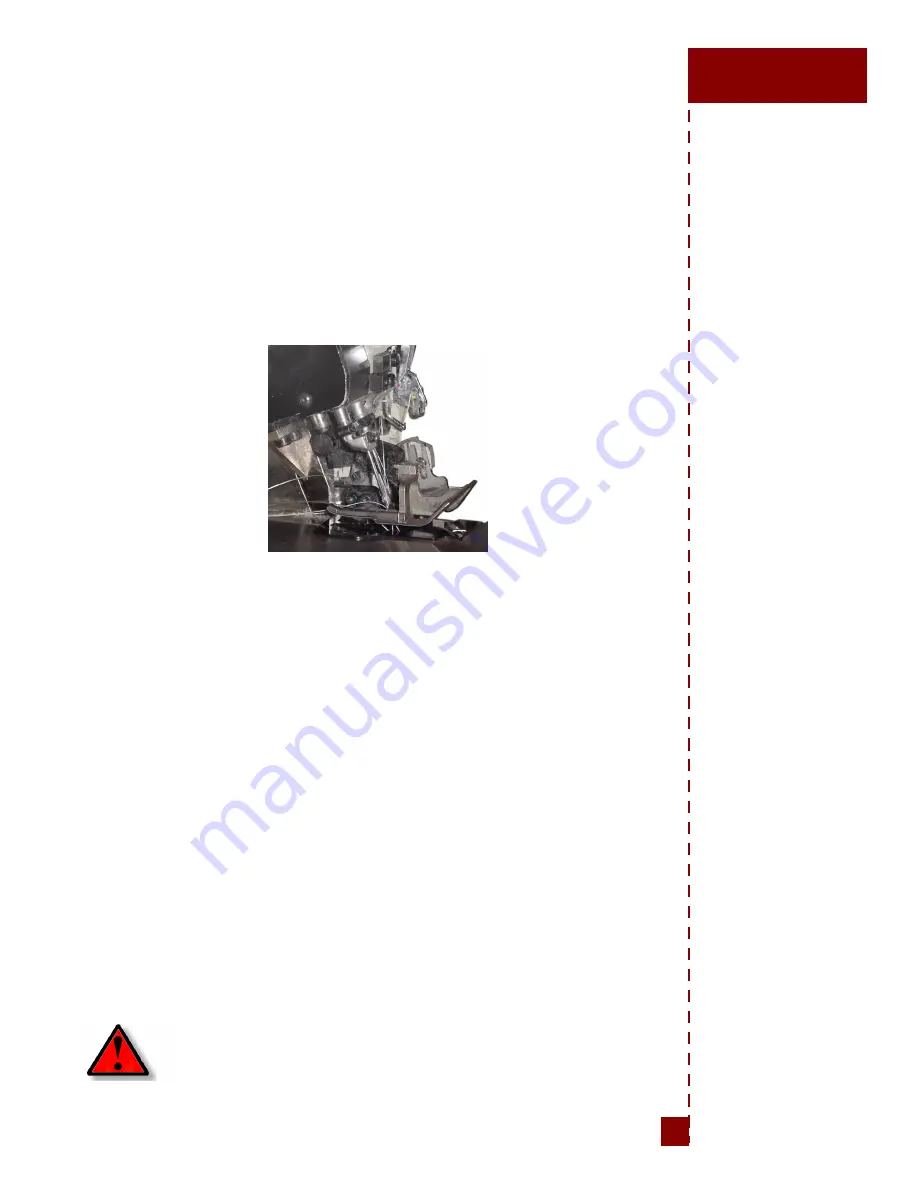
Flange Machine
Part Number 6Z8303
Machine Orientation
21
Walking Foot Mechanism
The walking foot mechanism is a mechanical bit with teeth that assists in the
transport of material. The motion of the mechanism imitates that of your foot as
you walk. The teeth go up, move forward, come down to contact the material,
then move in a backward motion to move the fabric as you sew. The presser
foot holds the material when the walking foot is raising up and moving
forward. When the walking foot moves downward, the presser foot is raised.
The walking foot then feeds material through the machine.
Figure 4.2
Walking foot mechanism
Tensioners
The tensioners are the knobs that adjust the upper and lower thread tension.
They control how tightly the thread is pulled when stitching. Balance between
the upper thread tension and the lower thread tension forms proper stitches.
For locating the tensioners and applying the correct tensions, refer to
Thread Guides
There are a number of devices, called thread guides, that guide the movement
of thread from the spool to the needle. These guides provide additional thread
tension.
Needle Bar
The needle bar is an angled metal rod that holds the needle for sewing. As the
machine sews, the needle bar moves up and down, raising and lowering the
needle to pierce the panel.
WARNING:
Do not place fingers under the needle bar at any time. The
needle bar moves at up to 4000 rpm.





